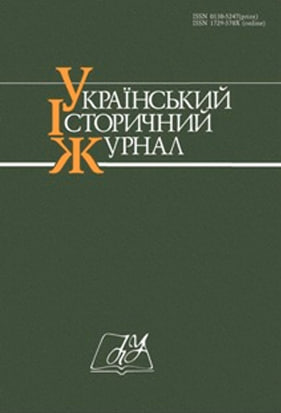Cooperation between the special services of the state center of the Ukrainian People’s Republic in exile and Japan in the first half of the 1930s
DOI:
https://doi.org/10.15407/uhj2023.01.103Keywords:
special services, cooperation, State Center of the Ukrainian People’s Republic in exile, Japan, Zelenyi Klyn (Green Ukraine), attache, memorandum, V. Mursky, IstanbulAbstract
The purpose of the article is to determine the primary forms and directions and analyze the content and results of cooperation between the secret services of the Ukrainian People’s Republic in exile and Japan in a specifi c chronological period. Being conditioned by this purpose, the research tasks reveal the primary stages of formation and development of cooperation of special services, specifi cs, and documentation features.
The research methodology is based on the principles of historicism, scientifi city, and comprehensiveness. Problem-based, concrete historical, chronological and historical, and legal methods are used.
The scientific novelty of the research is that the first time the cooperation of the secret services of the Ukrainian People’s Republic in exile and Japan is comprehensively covered.
Conclusions. It is proved that the initiator of establishing relations between the secret services of the Ukrainian People’s Republic in exile and Japan was V. Mursky, a representative of the UPR government in Istanbul, a diplomat, and Ukrainian special services offi cer, who was the first to establish close contacts and exchange information with Japanese attachés in Turkey. Subsequently, this practice reached the senior political leadership of the State Center of the Ukrainian People’s Republic and was extended to European centers, where Ukrainian politics emigration was concentrated. The talks focused on the functioning of the Ukrainian diaspora in the Far East, the possibility of creating a Ukrainian state as part of the UPR, ways, and means of disorganizing and dismembering the USSR in the event of its war with Japan, and ensuring Japanese support for the UPR and other participants of Prometheism. The results of the cooperation of special services were to improve the conditions of Ukrainian emigration organizations in Manchuria, whose territory was controlled by the Japanese military administration, to create favorable conditions for deepening contacts between the Japanese authorities and other currents of Ukrainian political emigration aimed at building an independent Ukrainian state. Due to the unfavorable international situation and the unequal political and legal status of the subjects of cooperation, it was not long-lasting and was curtailed in the mid-1930s.


